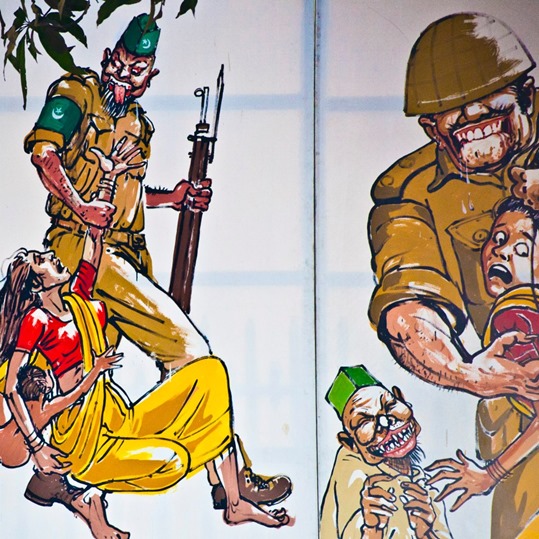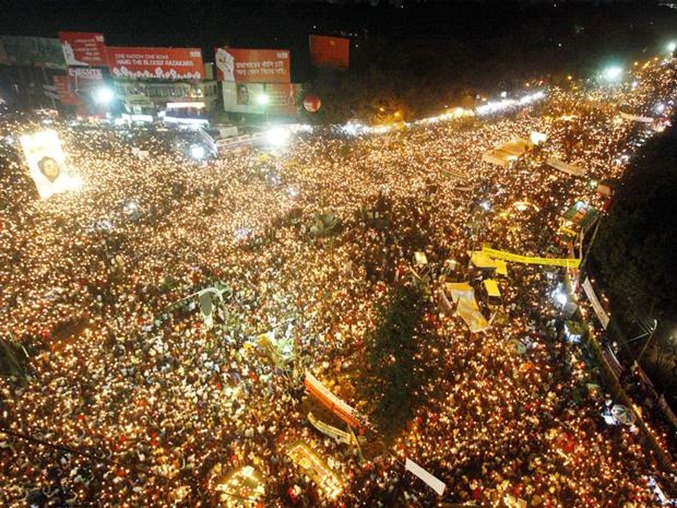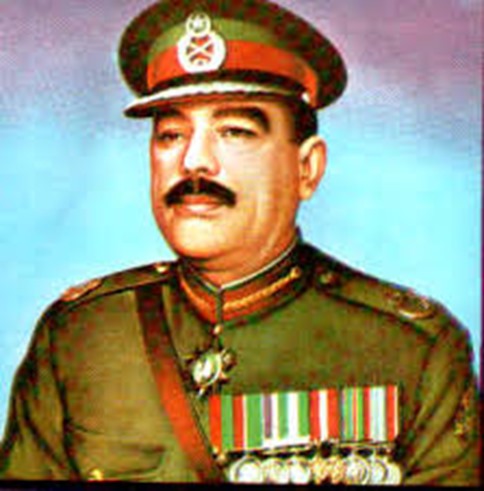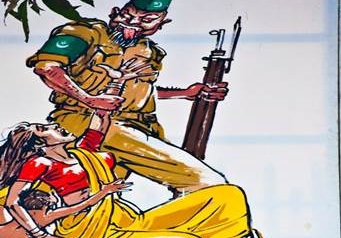Sven Longshanks
Daily Stormer
September 18, 2014

These attacks by Pakistanis on our women and children is nothing new.
You might want to go ahead and ask the Bangladeshis about them.
In the first phase of the war, young men and Hindus, Awami League members, intellectuals, students and academics were targeted for murder.
In the second phase of the war, women were singled out. It is thought that at least 200,000 women were raped by the Pakistani forces and their collaborators – 25,000 victims found themselves pregnant, so that is not implausible.
There are eyewitness accounts of “rape camps” set up by the Pakistani forces.
The numbers, and the names of rape victims, remain disputed. Sheikh Mujib, the first leader of Bangladesh, ordered the destruction of lists so that the shame would not follow the victims all their lives.

Pakistan is the dumping ground for all the lower castes of India, who saw joining Islam as a way to erase their undesirable status as Pariahs in Hindu society.
The Pakistani immigrants that have gone on to invade our countries from there are the lowest in their society there too.
So we have the worst of the very worst that the continent of Asia has to offer, now living in our countries and treating us the same way as they treated the Bangladeshis.
These people cannot be educated into changing their ways, the rapists in Rotherham had not just arrived off the boat, they were second and third generation immigrants from the same bottom of the barrel race that raped all those Bangladeshis.
Wherever they are, they will always be a threat to women and children.
We need to face up to that and remove all of them before the numbers raped in Britain start looking like the figures from Bangladesh.

